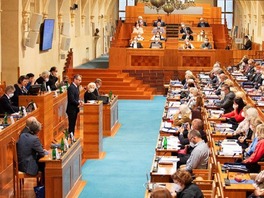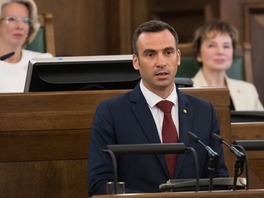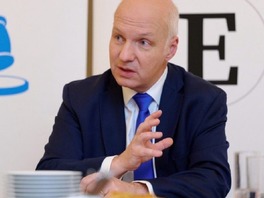Representatives of Ukrainian intelligence said that the extraordinary operation aimed at the detention of the Wagner group’s fighters was carried out “with the knowledge and alleged support of the United States". However, a senior U.S. officials denied having a direct role, CNN reports.
It was less than two weeks before Belarus' presidential election last year, and authorities suspected that the outsiders had been sent from Russia to interfere.
The men were indeed part of a mission. But the target was not Belarus, and they were not under orders from any Russian entity.
They were being set up. The 32, along with one other man detained in southern Belarus, were the target of an elaborate intelligence sting by Ukraine.
Former high-ranking Ukrainian military intelligence officials described how they orchestrated the extraordinary operation. First, the Ukrainian agents posed as a Russian private military company, recruiting for security jobs that paid above the going rate. That bait was taken by hundreds of would-be Russian contractors who applied for work and then were “interviewed” by the Ukrainian intelligence. In other words, according to the intelligence officers, the targets themselves started to send in evidence of who they were, their military experience and even the particular battles and incidents in which they had been involved, including IDs, and potentially incriminating photos and videos of their exploits in eastern Ukraine and elsewhere.
One video, for example, captures a group of rebel fighters in eastern Ukraine holding up the wreckage of a military aircraft that the sources said had just been shot down, a crime designated as terrorism in Ukraine. Other applicants linked themselves to the attack on MH17, the Malaysian Airlines flight from Amsterdam to Kuala Lumpur that was shot down in July 2014 over Ukrainian territory controlled by pro-Russian separatists.
According to the Ukrainian intelligence officials, the Ukrainian-led operation got US cash, technical assistance and advice from the CIA on how to draw the Russian mercenaries in. A senior US official, who requested anonymity as he was not authorized to speak publicly, told those claims are "false." He indicated US intelligence was aware of the operation but denied any involvement. He also suggested efforts to implicate US agencies may be an attempt to share, or even pass, blame for what was a high-risk Ukrainian operation that went wrong.
As three former high-ranking officials of Ukrainian military intelligence told, the operation led by Ukraine had American money, technical assistance and recommendations from the CIA on how to attract Russian mercenaries.
However, according to a senior U.S. official, these allegations are "false". He confirmed that U.S. intelligence knew about the operation, but denied any involvement. The official called the desire to make attempts to shift responsibility for failure to them involved in the U.S. special operation.
The plan was to pick those men with the closest and most controversial links to Ukraine and offered them the fake Venezuela contracts. The Ukrainian intelligence picked 28 Russians allegedly linked to illegal acts in Ukraine and five more without connections to allay any suspicions. They picked 28 Russians allegedly linked to illegal acts in Ukraine and five more without connections to allay any suspicions, they said. The Russians were told they would be flown to Turkey for a flight connection to Caracas. The real plan was to get them to Ukraine where they could be arrested.
The coronavirus pandemic threw an unexpected wrench in the plan when Russia closed its borders to stop the spread of Covid-19. Moscow did, however, continue to permit travel to its neighbor and ally Belarus. Therefore, the Russians were transported to Minsk by bus, from where they thought they would soon depart for Venezuela.
But once in Minsk, there was a delay, long enough for the Belarusian security services to act. The Russians were arrested by Belarus police. A former presidential adviser in Belarus told on the condition of anonymity that Belarusian authorities initially did believe the group had been sent to Belarus by the Russians to destabilize the country ahead of upcoming elections. He told there was confusion in Minsk over what seemed to be aggression from their Russian allies. UkrainianPresident Volodymyr Zelensky called for the extradition of the men to Ukraine during a telephone conversation with Belarus President Alexander Lukashenko just days after the arrests. However, a couple of days later, Lukashenko rejected that request.
The failure of the operation was a serious blow to the Ukrainian intelligence. The preparation of the operation was going on for almost 18 months.






